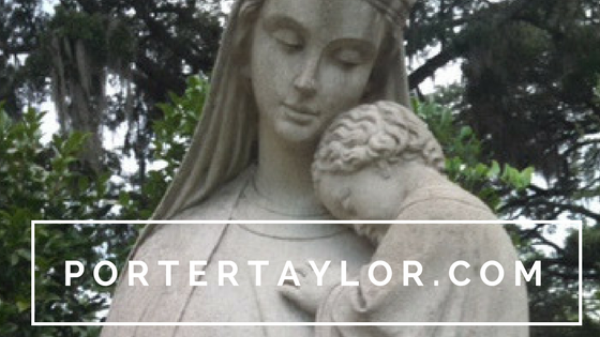August 28, 2024
Porter Taylor---Saints
I am coming up on my 74 birthday (and imaging you are saying, “he doesn’t look that old”). As I thought about this, I kept thinking of a novel by Graham Green (yes, I can be nerd). He writes,
“On his deathbed the hero of the book has a realization. He felt only immense disappointment because he had to go to God empty handed with nothing done at all. He felt like someone who missed happiness by seconds at an appointed place. He now knew that at the end there was only one thing that counted: to be a saint.”
The longer I live and the more I read about saints, the more I sense that I have known some saints who do not have ST. in front of their names. Frederick Buechner writes: “A saint is a life-giver, a human being with the same sorts of hang-ups and abysses as the rest of us” and Rowan Williams goes further:
Saints “have the power to break open some of the categories that invite the reader into a new world….They are, “in various ways, beacons of illumination, people who lived lives that open up perspective and horizons for the rest of us that are unpredictable and enriching.” (Twenty Lives that Illuminate the Christian Way).
He goes on to write that saints are important because through them one becomes aware that “you are not trapped in the story you tell about yourself, that vision is a gift worth sharing” (Twenty Lives…10).
The saints in my life have in many ways set me free from the story I told about myself. I was four pounds when I was born. I was in an incubator for a month. I grew up fearing the world was turning without me, or that if I didn’t try very hard, I’d be left behind.
But repeatedly men and women have helped me see beyond this story. Again, Williams writes, “if a saint touches your life, you become alive in a new way.” So, God kept sending people to me that reminded me of who I am as a child of God as well as who I am created to be.
I think of Charles Dubois at the Divinity School of Sewanee, who eased my anxiety over the Graduation Exams simply by sharing his own experience.
I think of Arthur Evans, one of the professors at Emory and a devote Roman Catholic, who showed me what being graceful and devout looks like as he lost more and more bodily control because of Parkinson’s disease.
I think of my father and his baffling sense of humor and his always surprising ways to have fun. He was a man bigger than life while I was a son who was often not sure of my own capacities.
Saints are not mortals on a higher plane of consciousness. They are not spiritual Super Men or Women. No, they are men and women who are living examples of what it means to live holy and honest lives. Saints are people who embrace that fact that they are wonderfully made and, therefore, as Julian of Norwich wrote, they are assured that since God is “in all things” and since God promises that God will “never fail to guide all things toward the purpose for which God created them from before time…[Then] how can anything go wrong?”
Saints help us breathe and live the life we are born to live with all its surprises and dead ends and blessings.
I have finally given up trying to be as smart as Thomas Merton or as productive as Teresa of Avila or as creative as Francis of Assisi.
Instead, I want to fully become who I am and invite all of us to accept and believe and rejoice that it’s enough to be fully ourselves.
